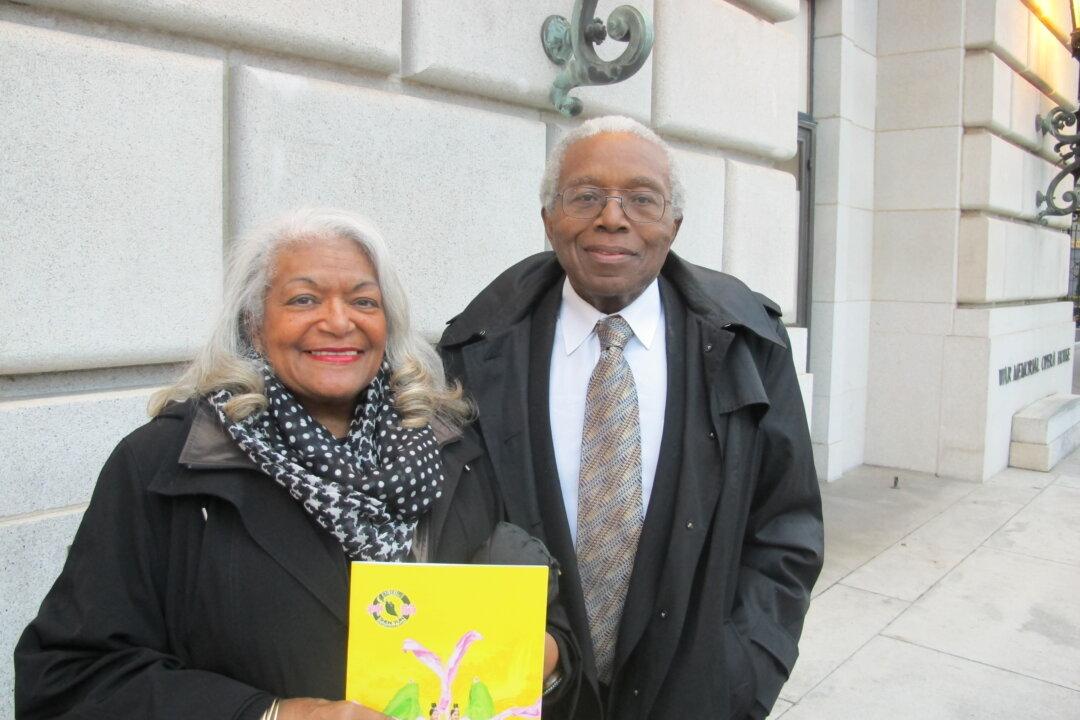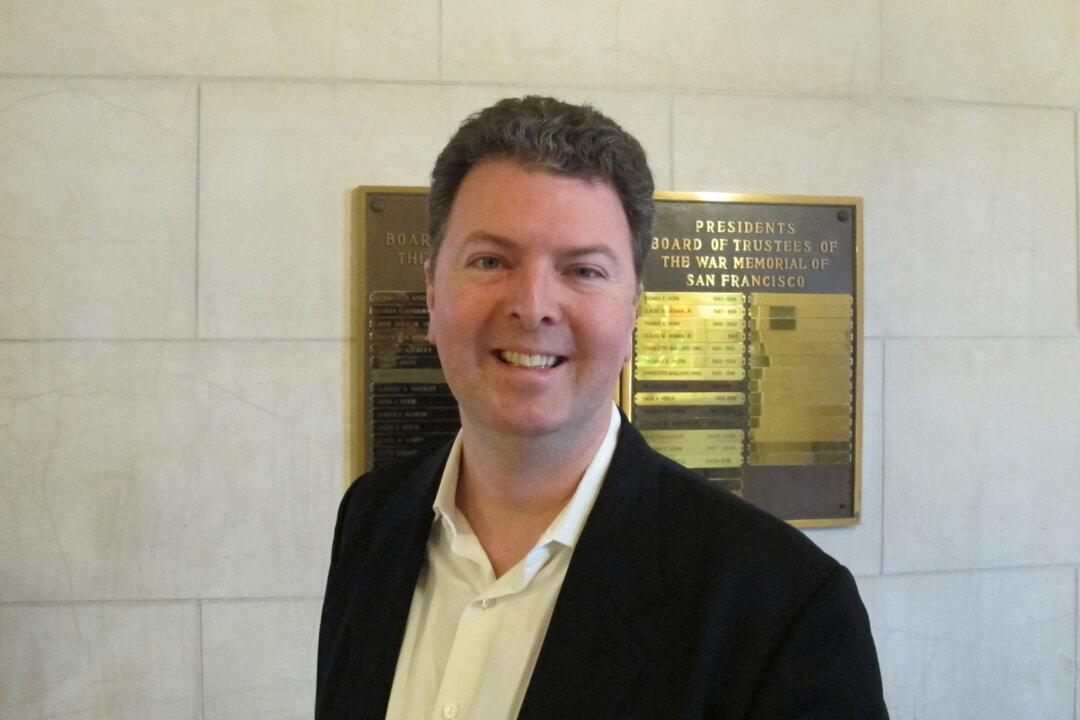SAN FRANCISCO—Supervisor Mark Farrell, representing San Francisco’s District 2, introduced legislation Tuesday, April 19 to eliminate the city’s practice of taxing employees on stock-based compensation, which he exclaimed, “It’s not a minor tax or just a little issue. This is a major problem.”
“San Francisco is the only city, not just in California but in the United States, which taxes stock options,” said Farrell to the Board of Supervisors while introducing the legislation.
Farrell, who has a background in business and banking, and is an entrepreneur, explained the consequences of this tax: “Young companies will not choose to locate here anymore and I know that investors will not fund companies to be based here in San Francisco.”
With the legislation just passed in San Francisco that provides perks to stay in the city, Farrell also mentioned that Twitter estimated their first-year tax burden from the stock option tax would be over $50 million.
Board President David Chiu also sees the urgency to address the issue saying, “I am equally committed to working as quickly as we can to solving the dilemma and the situation involving the stock options.”
President Chiu mentioned that he requested the city economist and controller to gather data and present their analysis to the board for review so they can form legislative proposals based on the analysis.
Gathering data on how much revenue San Francisco collects from this tax is at the top of the list for Farrell’s office which recognizes the tough economic times the city is facing at this time.
Mayor Edwin Lee and the technology council meet on Monday where the discussion on the tax issue began. Farrell mentioned that the Mayor is warm to his new legislation.
Farrell put out a warning at the council meeting based on Monday’s meeting with leading San Francisco tech companies: “One point resonated loud and clear to me, that despite their commitment to San Francisco to both live and work here and locate their companies here, they won’t and simply cannot continue to operate here in San Francisco with this tax.”
Farrell’s introductory legislation reads, “Issuing stock-based compensation has become an important vehicle in the technology industry to attract and retain valuable employees,” and further states, “Excluding stock-based compensation for San Francisco’s payroll expense tax is a critical step towards creating a competitive economic environment in San Francisco that entices companies that utilize stock-based compensation to attract and retain employees to stay in San Francisco or to move to San Francisco.”
In President Chiu’s comments on the issue to the board he concluded, “Despite the fact that at this time we may be the one city in the country that currently taxes stock options, hopefully soon we will address this situation in a way that both balances our current needs for revenues as well as assures that we absolutely incent the type of 21st century economic growth that we want to see happen here in San Francisco.”
One thing is certain is that Farrell does not want to “kick the can down the road for two more years” by adopting a two-year moratorium on the tax.
“San Francisco is the only city, not just in California but in the United States, which taxes stock options,” said Farrell to the Board of Supervisors while introducing the legislation.
Farrell, who has a background in business and banking, and is an entrepreneur, explained the consequences of this tax: “Young companies will not choose to locate here anymore and I know that investors will not fund companies to be based here in San Francisco.”
With the legislation just passed in San Francisco that provides perks to stay in the city, Farrell also mentioned that Twitter estimated their first-year tax burden from the stock option tax would be over $50 million.
Board President David Chiu also sees the urgency to address the issue saying, “I am equally committed to working as quickly as we can to solving the dilemma and the situation involving the stock options.”
President Chiu mentioned that he requested the city economist and controller to gather data and present their analysis to the board for review so they can form legislative proposals based on the analysis.
Gathering data on how much revenue San Francisco collects from this tax is at the top of the list for Farrell’s office which recognizes the tough economic times the city is facing at this time.
Mayor Edwin Lee and the technology council meet on Monday where the discussion on the tax issue began. Farrell mentioned that the Mayor is warm to his new legislation.
Farrell put out a warning at the council meeting based on Monday’s meeting with leading San Francisco tech companies: “One point resonated loud and clear to me, that despite their commitment to San Francisco to both live and work here and locate their companies here, they won’t and simply cannot continue to operate here in San Francisco with this tax.”
Farrell’s introductory legislation reads, “Issuing stock-based compensation has become an important vehicle in the technology industry to attract and retain valuable employees,” and further states, “Excluding stock-based compensation for San Francisco’s payroll expense tax is a critical step towards creating a competitive economic environment in San Francisco that entices companies that utilize stock-based compensation to attract and retain employees to stay in San Francisco or to move to San Francisco.”
In President Chiu’s comments on the issue to the board he concluded, “Despite the fact that at this time we may be the one city in the country that currently taxes stock options, hopefully soon we will address this situation in a way that both balances our current needs for revenues as well as assures that we absolutely incent the type of 21st century economic growth that we want to see happen here in San Francisco.”
One thing is certain is that Farrell does not want to “kick the can down the road for two more years” by adopting a two-year moratorium on the tax.



